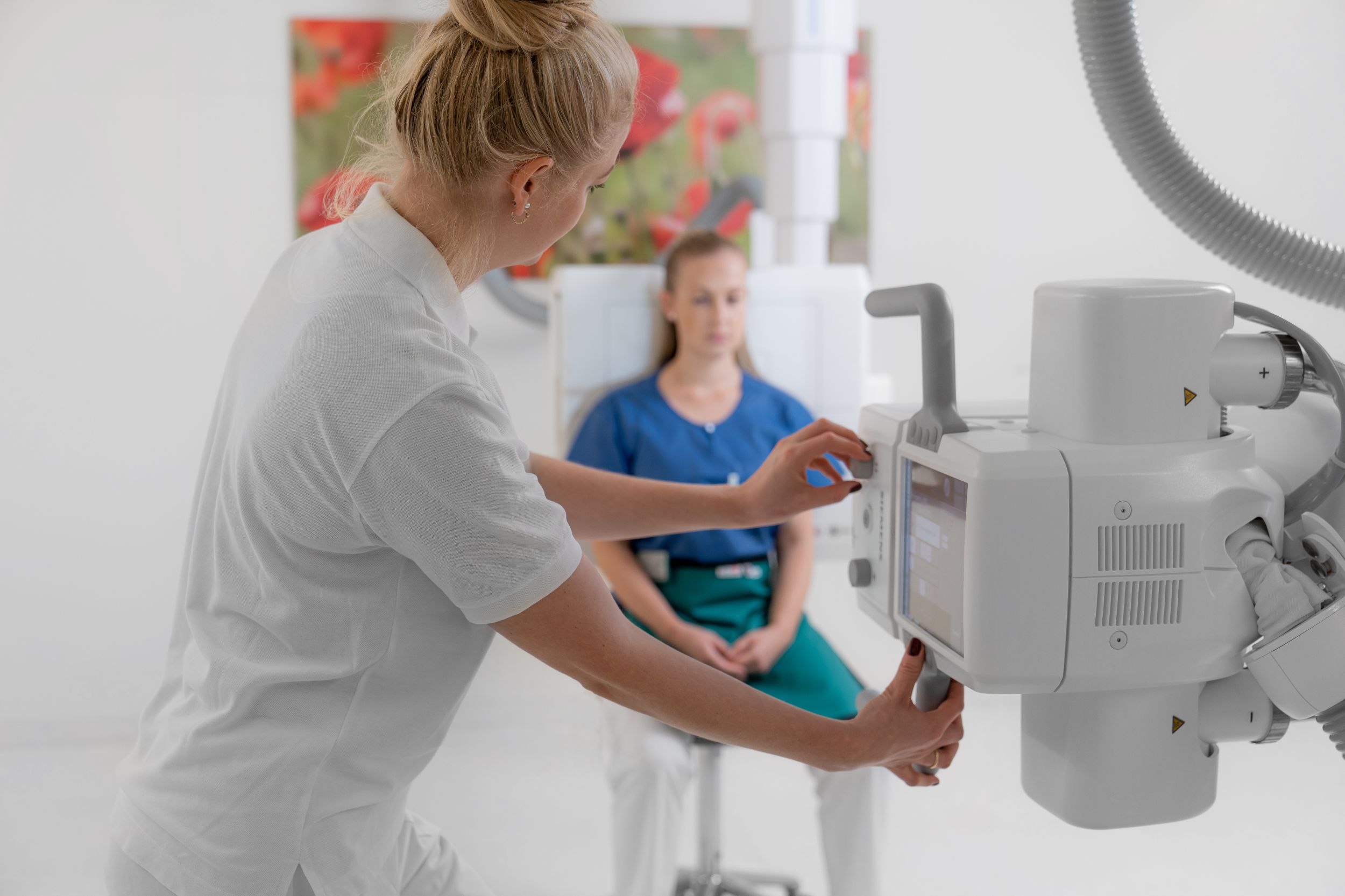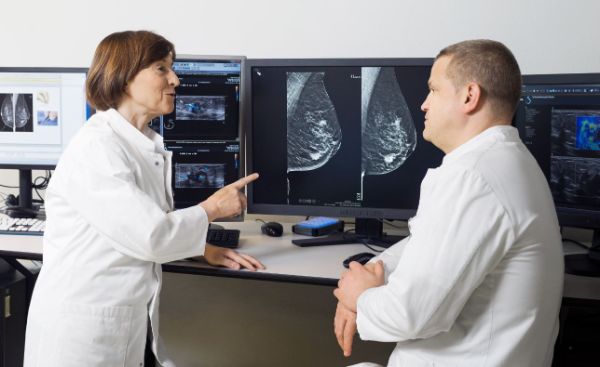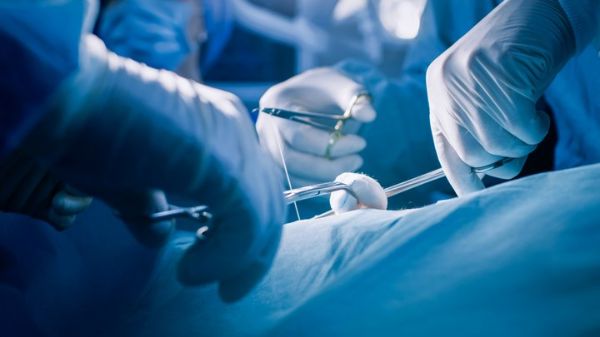Every year, we treat more than 200 patients with newly discovered breast cancer at the Breast Center, providing them with optimal care in close interdisciplinary cooperation using the latest diagnostic and treatment techniques.
Each patient is discussed with us before and after any surgery in a joint consultation to determine the next steps. Your personal needs are always the focus of our attention.
You will be accompanied by a specialized nurse, a Breast Care Nurse, throughout the entire clarification and treatment process.
Contact us
Appointments by arrangement
Monday: 8.00 a.m. - 12.00 p.m. and 1.00 p.m. - 4.30 p.m.
Tuesday: 9.30 a.m. - 12.00 p.m. and 1.00 p.m. - 4.30 p.m.
Wednesday: 8.00 a.m. - 12.00 p.m. and 1.00 p.m. - 4.30 p.m.
Thursday: 9.00 a.m. - 12.00 p.m. and 1.00 p.m. - 4.30 p.m.
Friday: 8.00 a.m. - 12.00 p.m. and 1.00 p.m. - 4.30 p.m.
Registration Breast Clinic
Phone +41 61 265 91 19
brustklinik@usb.ch
Management
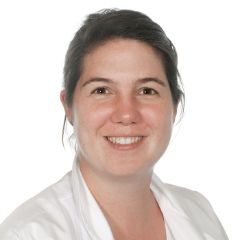

Prof. Christian Kurzeder
Co-Leiter Brustklinik, Chefarzt Senologie
Brustklinik
, Leiter Innovations-Focus Krebserkrankungen der Frau
Team
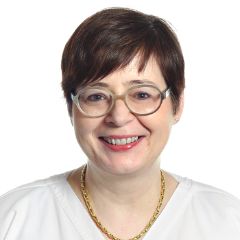

Dr. Anna-Lena Eberhardt
Kaderärztin
Radioonkologie und Strahlentherapie FMH
Kernteamleitung Basler Brustzentrum, Leitungsgremium gynäkologisches Tumorzentrum

Prof. Martin Haug
Leitender Arzt/ Stv. Chefarzt
Plastische, Rekonstruktive, Ästhetische u.Handchirurgie
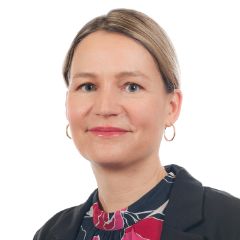
Prof. Simone Münst Soysal
Kaderärztin
Pathologie
Gynäko- und Mammapathologie, Kopf-/Hals-Pathologie

Dr. Noemi Schmidt - EBBI
Leitung Mammadiagnostik, Kaderärztin, Mitglied Tumorzentrum
Radiologie und Nuklearmedizin
Tel. +41 61 265 91 50
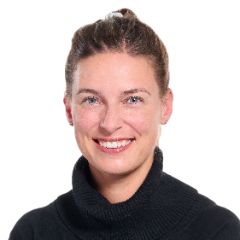

Prof. Walter Paul Weber
Co-Leiter Brustklinik, Chefarzt Brustchirurgie
Brustchirurgie
Stv. ärztlicher Direktor, Ärztlicher Departementsleiter, Departement Brust, Bauch und Becken, Stv. Leiter Brustzentrum
Secretariat
Our offer
Diagnoses
What happens after a lump is found in the breast? What are the next steps if something abnormal is found during an examination? Women suspected of having breast cancer want to have clarity about their situation as quickly as possible. The team at the Breast Center helps patients and is there for them at every stage.
Early detection thanks to screening program
Early detection of breast cancer increases the chances of recovery, enables gentler treatment and thus improves quality of life. This is why the Breast Center of the University Hospital Basel participates in the mammography screening program of the Canton of Basel City.
As part of the program, women aged 50 and over are invited to a screening examination every two years. Participation in the program is voluntary.
A mammography machine with the latest digital technology is available for the examination at the University Hospital Basel, which works in a radiation-saving manner. Thanks to the special image, even small tumors become visible long before they can be detected by palpation or other symptoms.
The screening program is subject to high quality standards, which are continuously reviewed and further developed. The mammograms are taken by specially trained specialists and evaluated by experienced radiologists.
Registration
Online registration
Cancer League Basel
Appointment management
Telephone registration
University Hospital Basel, Breast Diagnostics Radiology
Monday to Friday, 08:00-12:00 and 13:00-17:00
Phone +41 61 265 91 50
Self-examination
The best time
It is about eight days after your period because the breasts are softer then than before your period and it is easier to detect changes. Post-menopausal women should simply remember a specific date each month.
A critical look
Stand in front of a mirror and look at your breasts with your arms raised and lowered. Do you notice that one breast is larger than the other? This is normal. Turn to the left and right. Put your arms on your hips and tense your chest muscles. Lean forward, with and without tensing the muscles, and look for any changes in the shape and size of the breast, as well as any protrusions or indentations, redness, thickening or hardening of the skin.
Look for bloody discharge from the nipple or first-time indentations as well as inflammatory changes. If you feel a change, perhaps a lump, remember that four out of five breast lumps are harmless. Check the same area of the other breast. If it feels similar, this is a good sign that you are dealing with normal breast tissue. However, if there is no similarity, please inform the doctor. Remember: You should only notice changes in your breast, not make a diagnosis.
Step 1
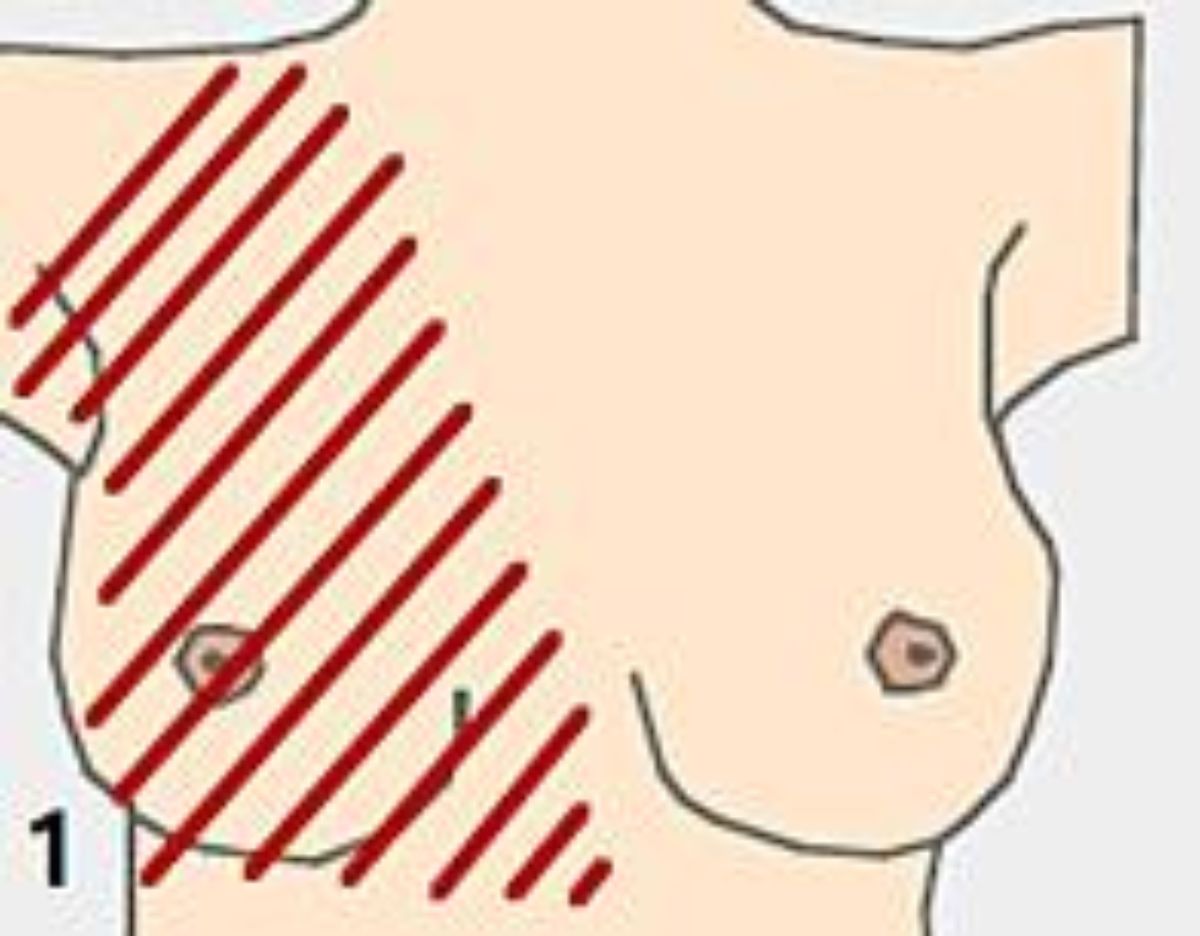
The breast extends from the collarbone to the fold of the breast and from the breastbone to a line that runs through the middle of the armpit. Use your right hand to examine the left breast and vice versa.
Step 2
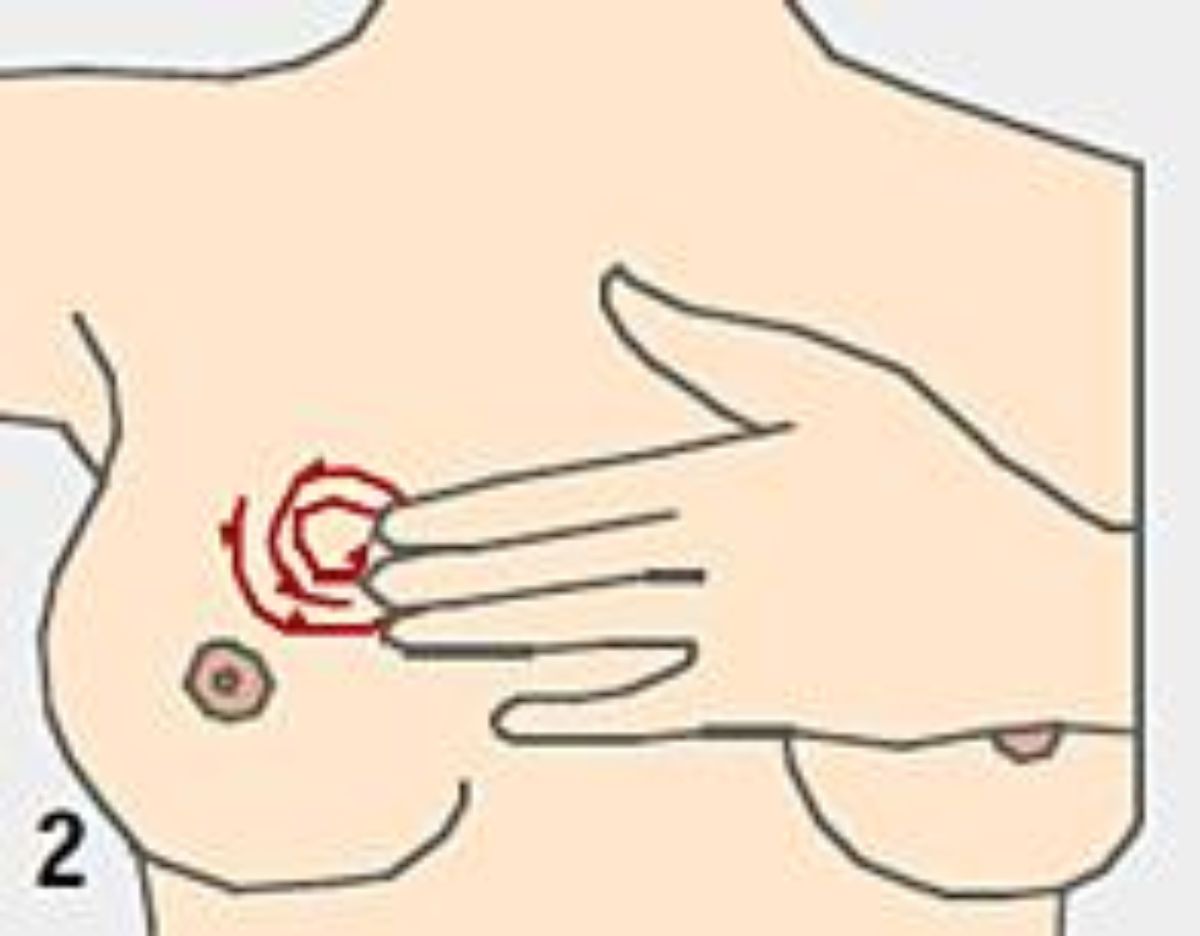
Place the front sections of your index, middle and ring fingers flat next to each other. At each point you are examining, feel with these three fingers in three circular movements over an area about the size of a 1-franc piece. Lumps can develop at different depths in the breast. Therefore, use only light pressure for the first circular movement, medium pressure for the second and strong pressure for the third.
Step 3
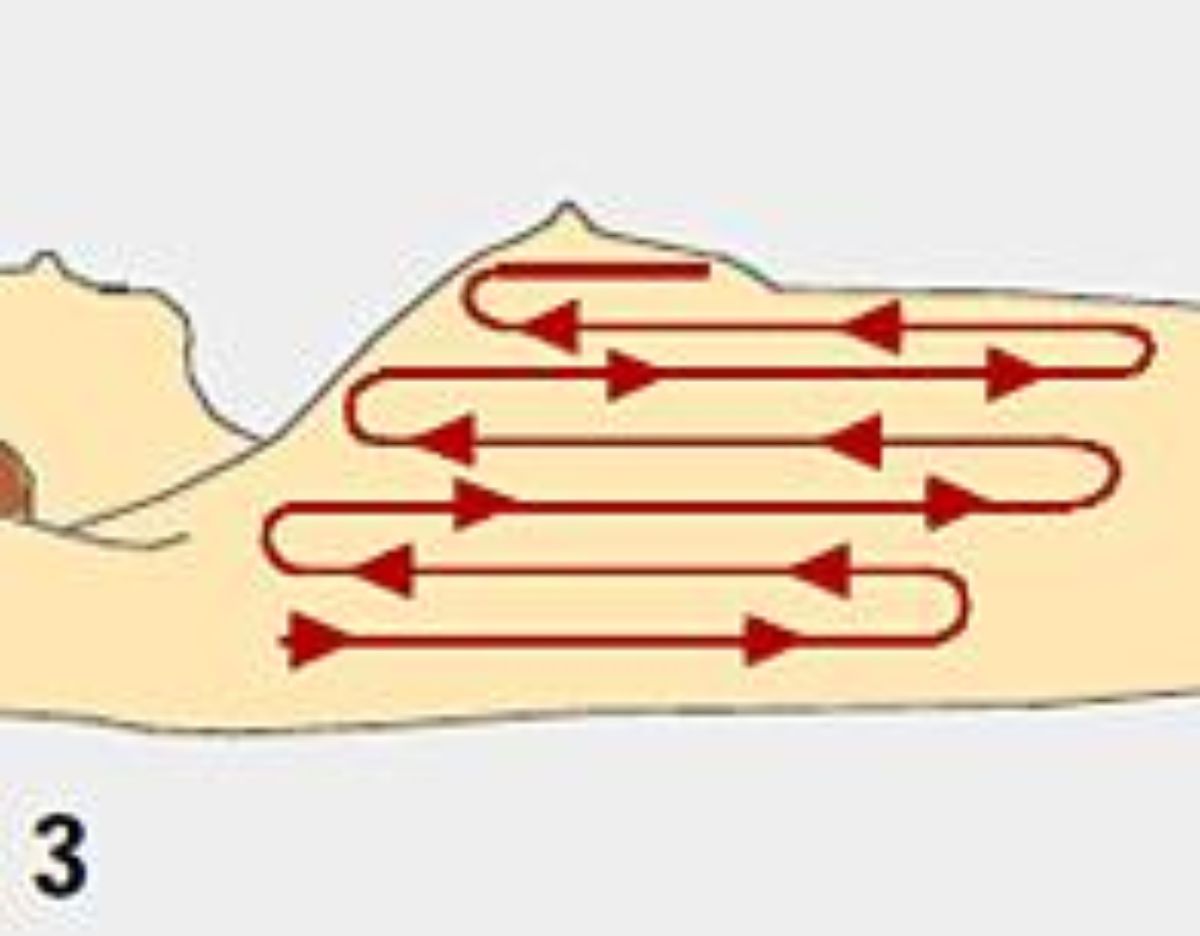
The ideal position for the palpation examination is lying down - in a semi-sideways position. To do this, first turn sideways with your legs bent and then turn your shoulder back to the supine position. This ensures that the breast is evenly distributed across the chest, with the nipple at the highest point.
Step 4
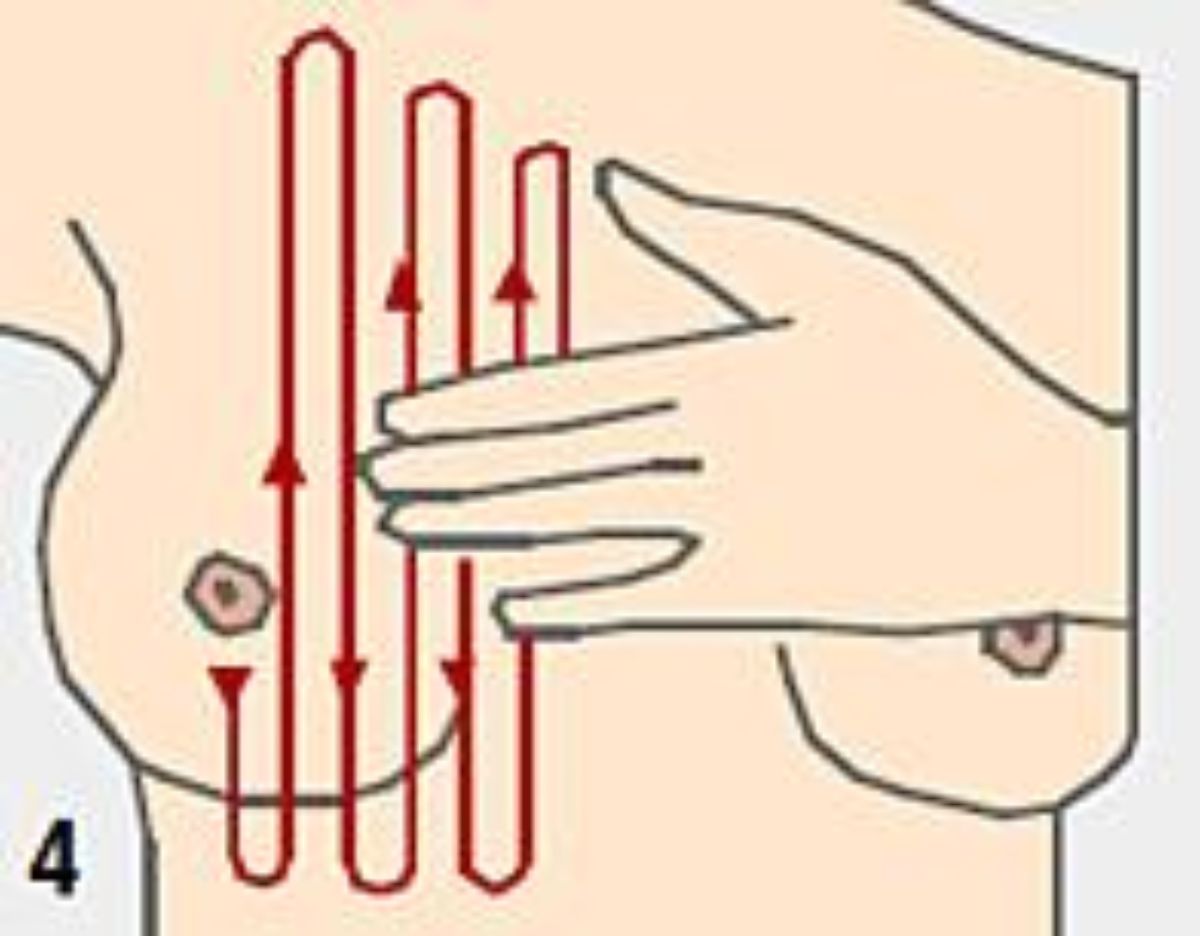
Start the palpation in the middle of the armpit and move your fingers up and down in parallel paths. At each point of the breast you are examining, palpate with the flat front sections of the three middle fingers. Perform three circular movements with three different levels of pressure.
Step 5
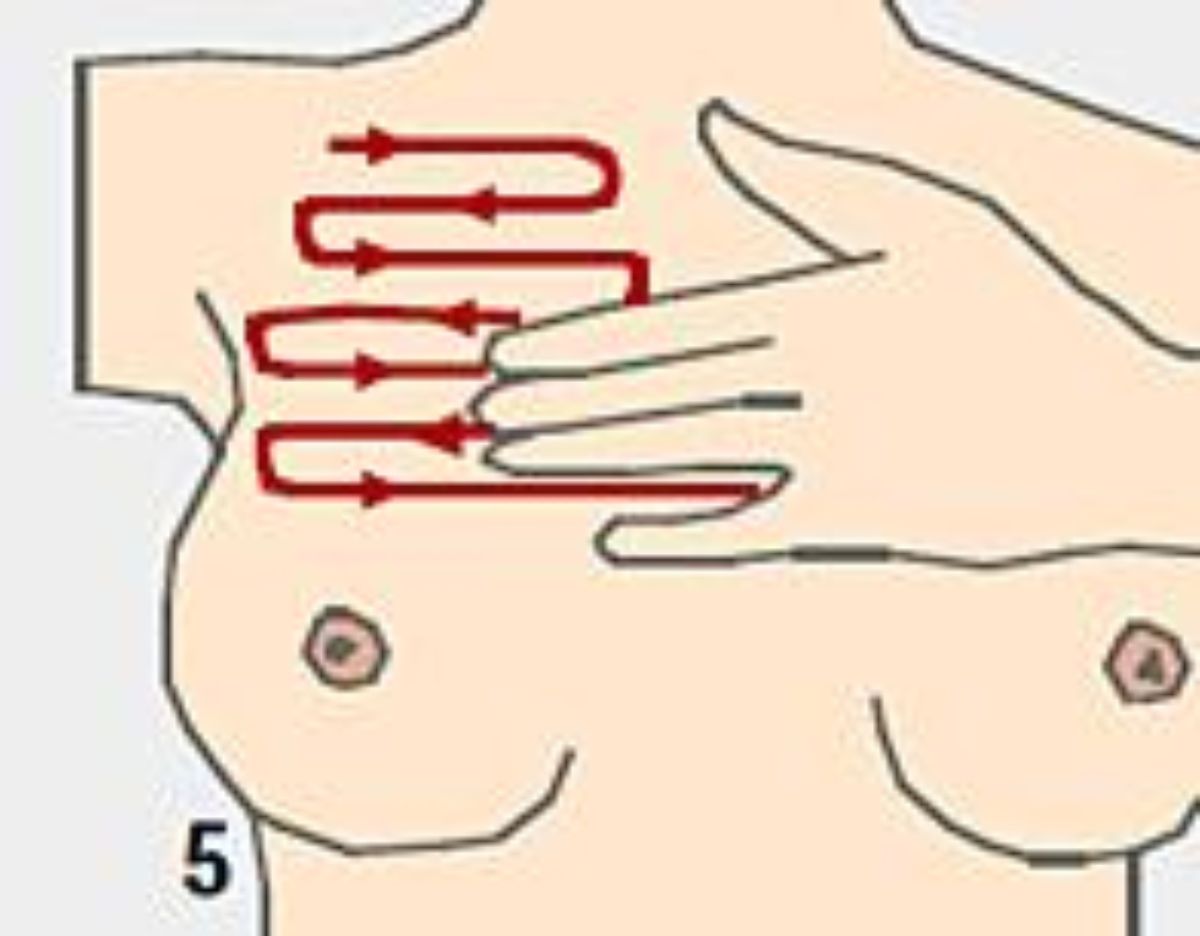
Finally, examine the regions above and below the collarbone in horizontal lines.
Radiological breast diagnostics
The first important step in the investigation is the X-ray examination of your diseased breast, the mammogram. You will be looked after by specialized radiologists and experienced medical-technical radiology specialists (MTRAs). Breast cancer screening is carried out using state-of-the-art equipment: the Breast Center has digital mammography including tomosynthesis (3D imaging method of high-resolution tomograms from different angles), ultrasound and magnetic resonance imaging (MR mammography). You can also submit findings from another hospital or practice to us for a second assessment.
Benign or malignant? If abnormalities are discovered during the breast examination, these findings will be clarified by means of a tissue sample (biopsy). Tissue samples can be taken with extreme precision under image control using mammography, ultrasound or MR mammography. It then takes a few days for you and your doctor to receive the results of the examination.
Registration
Contact breast diagnostics radiology:
Head: Dr. Noemi Schmidt
Appointments by arrangement
Monday to Friday 08.00-12.00 and 13.00-17.00
Phone +41 61 265 91 50
Pathology
Pathology deals with the examination of tissue samples and cell material taken during a biopsy. All tissue samples are first examined under a microscope. Using a wide range of additional examination methods, the benign or malignant findings can be differentiated even better. These additional examinations contribute to treatment planning. For example, every breast carcinoma is examined to see whether the tumor cells contain hormone receptors. If this is the case, treatment with hormone receptors may be advisable. During an operation, pathology specialists support the surgeons with frozen section examinations, the immediate examination of the operated tissue. Pathologists are indispensable participants in tumor conferences because, among other things, they determine the type of tumor.
Genetic test
Sometimes a genetic test (DNA analysis) can be useful, especially if there is a high incidence of cancer in your family. The most important clues come from your family history, in which specific questions are asked about cancers of the breast, ovaries, pancreas and prostate in blood relatives. In a detailed consultation, your individual risk of breast or ovarian cancer is determined with the help of family tree analyses and, if necessary, a genetic test is recommended.
Treatments
The radical surgical techniques of earlier times are history - today, breast-conserving surgery is possible for many patients. Surgery is becoming increasingly gentle and is no longer seen in isolation, but as an essential part of interdisciplinary cooperation. Patients can rest assured that they are in good hands at the Breast Center.
Surgical therapies
Oncoplastic surgery
The surgical focus is on modern oncoplastic surgery, which has been offered in close collaboration with plastic surgery since 2011. By combining tumor surgery and plastic-reconstructive surgical techniques, it enables optimal cosmetic results in both breast conservation and breast removal. With this surgical method, we can remove the tumor and also address your wishes regarding breast modulation.
Surgery of the armpit
Whereas in the past most of the lymph nodes in the armpit were removed, today only the sentinel lymph node is usually removed first. In the majority of cases, these sentinel lymph nodes are without tumor involvement, so that the removal of the remaining axillary lymph nodes can be dispensed with. New study results have shown that in many patients, even if there are tumor deposits in the sentinel lymph nodes, the removal of the remaining lymph nodes in the armpit can be dispensed with. This makes the procedure smaller and the surgical technique gentler.
Plastic surgery
Breast reconstruction after tumor surgery is part of the holistic treatment at the Breast Center. You will receive detailed advice on various aspects of breast reconstruction as soon as the treatment concept is determined following your tumor diagnosis. The entire spectrum of breast reconstruction, including complex microsurgical procedures with autologous tissue, is available to you at the Breast Center.
Your aesthetic perception and well-being in your own body are important to us. Together with our qualified specialists in plastic, reconstructive and aesthetic surgery, you can discuss your individual wishes and the various options for breast reconstruction.
Further information:
Breast reconstruction - information about the surgical options
Radiotherapy
Radiotherapy is also an integral part of breast cancer treatment and promotes healing in over half of breast cancer cases. It is also an important part of symptom-relieving tumor treatment. We will inform you in detail about the exact procedure, effects and other details before the start of treatment so that you can better imagine what radiotherapy will do in your particular case and what you can expect.
Thanks to state-of-the-art technology, we direct the therapeutic X-rays specifically and very precisely into the tumor region. The team at the University Hospital has particular experience in the following types of therapy: intensity-modulated radiotherapy (IMRT), image-guided radiotherapy (IGRT), stereotactic radiotherapy to the head and trunk of the body, radiosurgery, biological therapy planning and brachytherapy, also known as minimally invasive short-distance therapy.
Oncological therapies
Our team offers patients continuous treatment during drug therapy for tumors. The offer includes all drug therapies (chemo- and hormone therapies, antibody infusions, modern molecular drugs).
If you wish, you can take part in national and international studies to optimize therapy and test new substances. This is often a unique opportunity to receive promising new therapies that would otherwise not be approved.
Psycho-oncology
In addition to medical therapy, the Breast Center offers you targeted psycho-oncological care. In the form of counseling, we support you in finding your emotional balance, security and orientation again and in dealing better with worries and fears. You can take advantage of this support both during your inpatient stay and during outpatient aftercare.
Care in the Breast Center
Breast tumors often require surgery, which can lead to changes in the patient's body image. Chemotherapy, radiotherapy and hormone therapies have side effects. What can I expect during my treatment? We specialize in such issues and support patients throughout the entire disease process, from diagnosis to tumour aftercare. We offer sound advice on the effects and symptoms of the therapies and talk about any changes in body perception after an operation. Our nursing team is complemented by specialized nursing staff, so-called Breast Care Nurses . We make contact with patients as soon as the diagnosis is made, accompany them through the hospitalization and are also the contact persons for questions afterwards.
Breast Care Nurse
Our Breast Care Nurses advise and support you and your relatives throughout the entire course of your illness: from diagnosis to the end of treatment and beyond your stay in hospital. The qualified nurses, who specialize in the care and support of breast cancer patients and their relatives, will answer your questions about coping with everyday life and therapy.
Your Breast Care Nurse will also support you with psychosocial stress, body image work and role changes in the family and at work. Furthermore, she will show you how to optimally care for and treat the surgical scars after breast surgery and will advise you on the selection of suitable support services. Your Breast Care Nurse will also inform you about additional offers, such as the "Look Good ... Feel Better" workshop, in which professional beauty consultants guide our patients through a 12-step beauty program.
Our Breast Care Nurses work closely with the social services and psycho-oncology department and remain your point of contact for questions and concerns even after your treatment has ended.
Contact us
Breast Center
Clinic 1, 1st floor
Spitalstrasse 21
4031 Basel
Monday to Friday 8.00-15.00
Phone +41 61 328 79 54
breastcarenurse@usb.ch
Further information
Mamma-Sprechstunde
Die im Brustzentrum integrierte Mamma-Sprechstunde ist für Frauen mit gutartigen und bösartigen Brusterkrankungen gedacht. Frauen mit erhöhtem Brustkrebsrisiko werden in der Sprechstunde individuell beraten und erhalten eine Vorsorgeuntersuchung. Auch Schwangere und Stillende mit Brustproblemen können die Mamma-Sprechstunde aufsuchen.
Sie können sich selber zur Mamma-Sprechstunde anmelden oder sich von Ihrem Hausarzt überweisen lassen. An der ersten Sprechstunde werden Sie von erfahrenen Fachärztinnen und Fachärzten untersucht. Anschliessend wird ein Brustultraschall durchgeführt. Sofern nötig, wird eine Biopsie (Gewebeentnahme) unter Ultraschallkontrolle vorgenommen. Dieser Eingriff geschieht vor Ort und mit örtlicher Betäubung. Die Analyse der Gewebeproben geschieht im Unispital-eigenen Labor.
Die Befunde werden in den Tumorkonferenzen, an denen Expertinnen und Experten unterschiedlicher Fachbereiche teilnehmen, beurteilt. Die daraus hervorgehenden Vorschläge für diagnostische und therapeutische Massnahmen werden anschliessend mit Ihnen und Ihren Angehörigen ausführlich besprochen. So erstellen wir zusammen mit Ihnen ein auf Sie abgestimmtes Therapieprogramm.
Termine nach Vereinbarung
Montag: 8.00 – 12.00 Uhr und 13.00 – 16.30 Uhr
Dienstag: 9.30 – 12.00 Uhr und 13.00 – 16.30 Uhr
Mittwoch: 8.00 – 12.00 Uhr und 13.00 – 16.30 Uhr
Donnerstag: 9.00 – 12.00 Uhr und 13.00 – 16.30 Uhr
Freitag: 8.00 – 12.00 und 13.00 – 16.30 Uhr
Anmeldung Brustklinik
Tel. +41 61 265 91 19
brustklinik@usb.ch
Frequently asked questions about breast cancer
FAQ Breast cancer
Are there groups of people who need more intensive screening for breast cancer? - Prof. Christian Kurzeder
What is a Breast Care Nurse? - Andrea Imgraben
When is surgery necessary for breast cancer and what is done? - Prof. Walter Weber
When is the right time for breast reconstruction? - Prof. Martin Haug
Which concerns should I discuss with a Breast Care Nurse? - Daniela Richner
FAQ Breast cancer
Are there groups of people who need more intensive screening for breast cancer? - Prof. Christian Kurzeder
What is a Breast Care Nurse? - Andrea Imgraben
When is surgery necessary for breast cancer and what is done? - Prof. Walter Weber
When is the right time for breast reconstruction? - Prof. Martin Haug
Which concerns should I discuss with a Breast Care Nurse? - Daniela Richner

